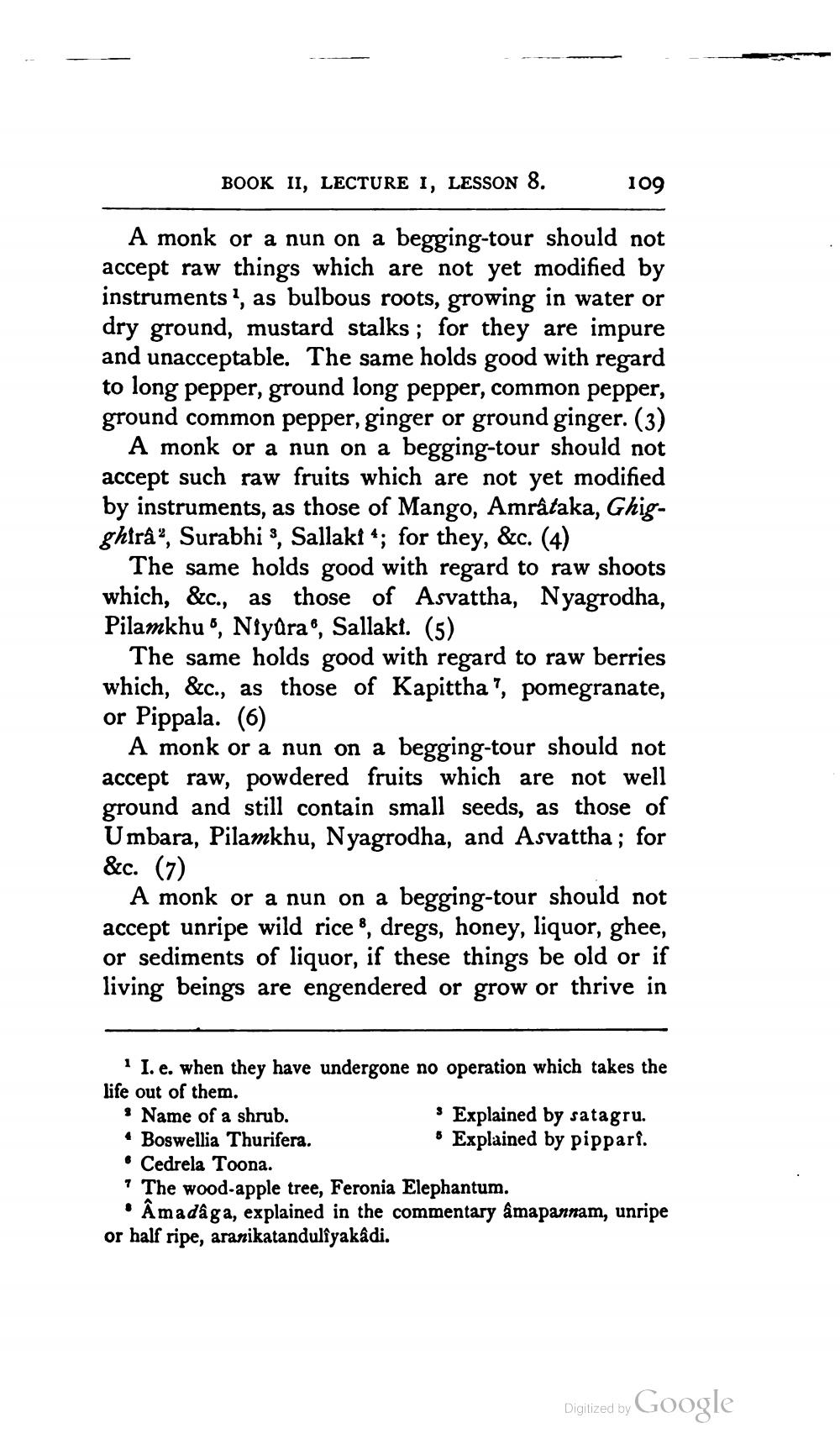________________
BOOK II, LECTURE I, LESSON 8.
109
A monk or a nun on a begging-tour should not accept raw things which are not yet modified by instruments?, as bulbous roots, growing in water or dry ground, mustard stalks ; for they are impure and unacceptable. The same holds good with regard to long pepper, ground long pepper, common pepper, ground common pepper, ginger or ground ginger. (3)
A monk or a nun on a begging-tour should not accept such raw fruits which are not yet modified by instruments, as those of Mango, Amrâtaka, Ghigghira”, Surabhi ?, Sallakt 4; for they, &c. (4)
The same holds good with regard to raw shoots which, &c., as those of Asvattha, Nyagrodha, Pilamkhu ”, Niydra®, Sallakt. (5)
The same holds good with regard to raw berries which, &c., as those of Kapittha?, pomegranate, or Pippala. (6)
A monk or a nun on a begging-tour should not accept raw, powdered fruits which are not well ground and still contain small seeds, as those of Umbara, Pilamkhu, Nyagrodha, and Asvattha ; for &c. (7)
A monk or a nun on a begging-tour should not accept unripe wild rice ®, dregs, honey, liquor, ghee, or sediments of liquor, if these things be old or if living beings are engendered or grow or thrive in
* I. e. when they have undergone no operation which takes the life out of them. • Name of a shrub.
• Explained by satagru. • Boswellia Thurifera.
• Explained by pippari. • Cedrela Toona. ? The wood-apple tree, Feronia Elephantum.
• Âmadaga, explained in the commentary âmapannam, unripe or half ripe, aranikatandulîyakâdi.
Digitized by Google




